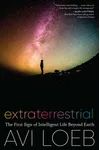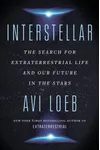Imagine a scientist gazing at the stars, not just to map the cosmos but to hunt for signs of alien life—meet Avi Loeb! This Israeli-born Harvard astrophysicist has spent decades unraveling the universe’s mysteries, from black holes to the dawn of the first stars. But it’s his bold theories about extraterrestrial technology, like the interstellar object ‘Oumuamua, that have made him a global sensation, sparking debates and captivating imaginations.
With a knack for blending rigorous science with provocative ideas, Loeb challenges us to rethink our place in the cosmos. His books, like Extraterrestrial and Interstellar, invite readers to ponder the possibility of alien civilizations, while his leadership in projects like the Galileo Project pushes the boundaries of astrophysics. Ready to dive into the cosmic adventure that is Avi Loeb’s life?
The Making of Avi Loeb
Born in 1962 in Beit Hanan, Israel, Abraham 'Avi' Loeb grew up on a farm, where starry nights fueled his curiosity about the universe. His intellectual journey began with the elite Talpiot program in the Israeli Defense Forces, where he earned degrees in physics and mathematics from the Hebrew University of Jerusalem. By age 24, he had a PhD and was leading groundbreaking projects in plasma physics. After a stint at Princeton’s Institute for Advanced Study, Loeb joined Harvard in 1993, where he’s been a trailblazer ever since, chairing the astronomy department and founding the Black Hole Initiative.
Avi Loeb’s Cosmic Contributions
Loeb’s work spans the vastness of astrophysics, with over 1,000 scientific papers exploring black holes, the early universe, and the search for extraterrestrial life. His writing style—clear, bold, and unafraid of controversy—shines in his popular science books. Extraterrestrial: The First Sign of Intelligent Life Beyond Earth (2021) argues that ‘Oumuamua, a strange interstellar object spotted in 2017, might be alien technology, possibly a light sail. Critics scoffed, but Loeb’s evidence-based reasoning stirred global intrigue.
His follow-up, Interstellar: The Search for Extraterrestrial Life and Our Future in the Stars (2023), outlines a blueprint for humanity’s interstellar future, urging proactive engagement with potential alien civilizations. Beyond books, Loeb leads the Galileo Project, using cutting-edge observatories to scan the skies for signs of extraterrestrial artifacts. His work blends meticulous science with a philosophical openness to the unknown, making complex ideas accessible and thrilling.
Loeb’s theories often spark debate, as seen in his 2023 claim of finding interstellar meteor fragments in the Pacific Ocean, which some peers dismissed as sensational. Yet, his willingness to challenge dogma has redefined conversations about alien life, encouraging scientists and the public to stay curious.
Why Avi Loeb Matters
Avi Loeb’s impact lies in his fearless pursuit of truth, even when it defies convention. By advocating for the scientific study of unidentified anomalous phenomena (UAP) and interstellar objects, he’s broadened the scope of astrophysics, making it more inclusive of bold hypotheses. His books have inspired millions to question whether we’re alone in the universe, while his Galileo Project could reshape how we search for extraterrestrial intelligence. Loeb’s legacy is a call to embrace curiosity and humility in the face of the cosmos.
About Avi Loeb
- Born: February 26, 1962, in Beit Hanan, Israel
- Key Works: Extraterrestrial (2021), Interstellar (2023)
- Notable Roles: Frank B. Baird Jr. Professor of Science at Harvard, Director of the Galileo Project
- Fun Fact: Time magazine named him one of the 25 most influential people in space in 2012.
Curious about alien life or the future of humanity among the stars? Grab Extraterrestrial or Interstellar and blast off into Avi Loeb’s cosmic vision!

